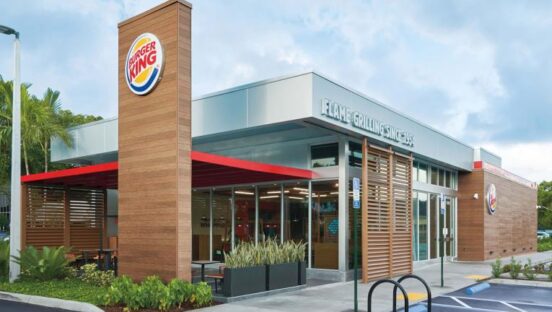Burger King franchisee Meridian Restaurants Unlimited sold a majority of its restaurants out of bankruptcy months after filing for court proceedings due to COVID pressures.
The company had 120 restaurants when it entered bankruptcy in March. At the time of the auction—which occurred this month—it had 91 stores. Seventy of them were sold to Burger King and four franchisees for a little over $17 million combined:
- Burger King was the biggest buyer, acquiring 32 units for $4.7 million across Utah (17), Montana (12), and Wyoming (three).
- Kansas King bought 16 units for $2.2 million in Kansas (11) and Nebraska (five).
- Dakota Restaurant Partners bought 12 locations for $3.4 million in Minnesota (two), Montana (one), and North Dakota (nine).
- Kraf purchased seven Arizona-based restaurants for $7 million.
- Snake River Foods acquired three Montana-based units for $632,250
According to court documents, there were no acceptable qualified bids for the remaining 21 restaurants.
Meridian blamed its bankruptcy on cash flow issues stemming from increased wages, labor costs, shipping, food inflation, decreased availability of staff, and declining food traffic. The company was suffering from lower revenues, without proportionate decreases in rent, debt service, and other liabilities. This has been the story since Meridian started; the franchisee has lower revenues than the system average because the founder acquired underperforming stores.
The chain had $14 million in unsecured debt when it filed. It owed Burger King royalties, advertising contributions, rent, and other amounts. There were also funds due to other landlords.
Meridian wasn’t the only Burger King franchisee to fall. Even earlier, 90-unit TOMS King declared bankruptcy for similar reasons—decreased revenue and tough liabilities.
Burger King is in the midst of a $400 million comeback plan, and part of the journey has required a hard look at the footprint. The company said in May that an estimated 300-400 U.S. restaurants will shut down this year. Most of these locations are low volume. The idea is to replace these franchisees with higher-performing operators who take more ownership. Average four-wall EBITDA of “A” Burger King operators was over 65 percent higher than the system average in 2022. RBI CEO Josh Kobza also noted that typically, taking 1 percent price equals a 0.4 percent dip in traffic, but “A” and “B” franchisees see significantly higher flow-through rates because guests are willing to pay for better experiences.
Burger King earned $10.2 billion in U.S. sales last year, ranking No. 8 on this year’s QSR 50. More recently, same-store sales grew 8.3 percent in Q2, after seeing an 8.7 percent lift in Q1. In the second quarter, sales were fueled by multiple Whopper promotions that brought forth higher average tickets.








